There’s a concerning trend in Scholastic’s biennial Kids and Family Reading Report: Data reveals an increase over the past few years in the percentage of kids across all ages who report reading zero books during the summer.
Seventy percent of kids and 94% of parents agree that reading over the summer will help students during the school year. Yet 32% of kids ages 15-17 said they read no books over the summer in 2018— a steep rise since 2016 (22%).
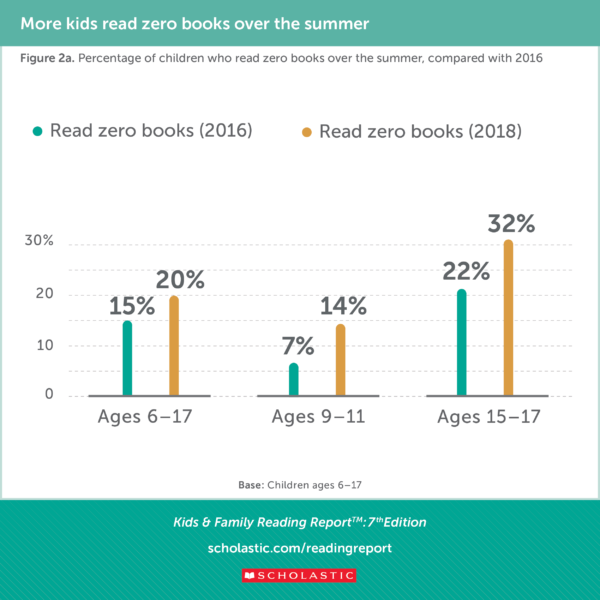
More younger kids read a few books over the summer, but the percentage of kids ages 9-11 who read no books over the summer has doubled since 2016– from 7% to 14%.
Much about “summer slide”—defined as learning loss when school is not in session— is attributed to lack of reading. So what are some of the best ways to make sure that children of all ages know what it means to lose themselves in a great summer read?
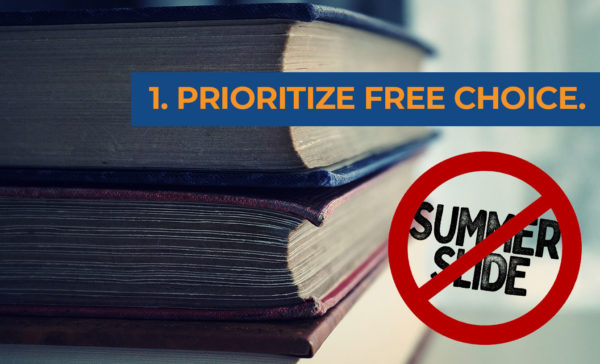
1. PRIORITIZE FREE CHOICE.
The same Scholastic report found that the top reason (70%) why kids enjoy summer reading is that they have the power to choose their own books and read whatever and whenever they want. Kids identify schools (53%) and public libraries (50%) as the top sources of the books they read— so finding ways to maintain the same level of free choice that students might find during visits to the library during the school year is important. Regular trips to the neighborhood public library are key— or try a neighborhood book swap to exchange great reads with other readers of similar ages.
Across all demographics, the majority of kids (89%) agree that their favorite books are the ones they have picked out themselves.
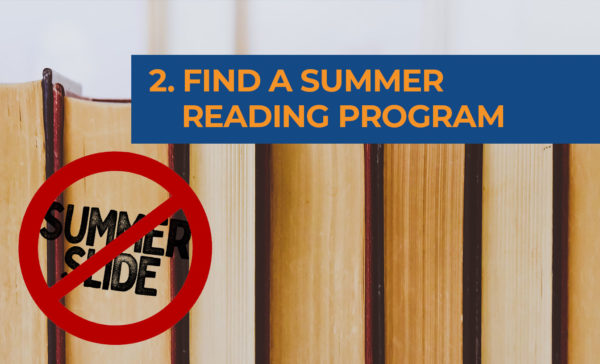
2. FIND A SUMMER READING PROGRAM.
Kids who have the opportunity to participate in some sort of summer reading program say that their participation resulted in them reading more than they otherwise would have. Even though most public libraries sponsor these programs, access to summer reading programs may be uneven in local neighborhoods, as only 22% of kids reported participation in the Scholastic survey. Here’s a list of some opportunities that are open to all— including Sync, which gets teens two free audiobooks each week of the summer. (This blogger isn’t a teen, but I just subscribed!)
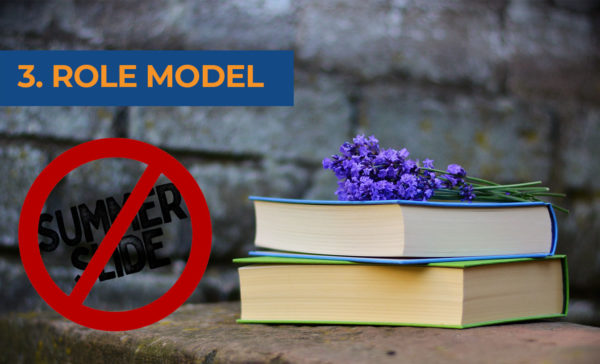
3. ROLE MODEL.
Four in ten kids agree that they have trouble finding books they like, according to the Scholastic survey— but one-third fewer parents than kids think their child has trouble finding books. More frequent readers have parents who are more likely to consider reading books for fun important compared to parents of infrequent readers (95% vs. 70%). Parents of frequent readers are also more likely to be frequent readers themselves (39% vs. 16%). It’s clear that role modeling a reading habit by discussing book choices, demonstrating reading, and prioritizing time to read makes a big difference.
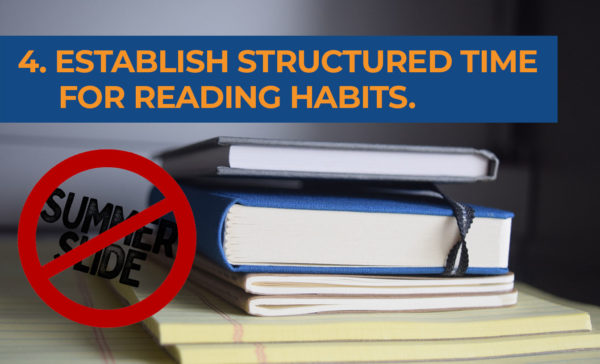
4. ESTABLISH STRUCTURED TIME FOR READING HABITS.
During the school year, many teachers build time for reading into the school day. Why not build the same habits into the summer— except maybe in more comfortable locations, or at the times your child prefers? Reading together during loosely scheduled times— say, outdoors in the evening, or sitting on the porch together on a weekend—can turn into an enjoyed and anticipated routine.
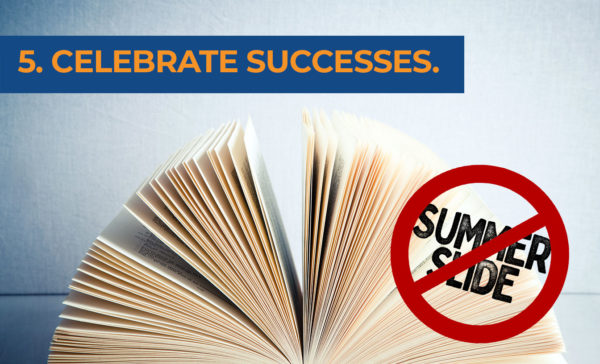
5. CELEBRATE SUCCESSES.
According to author John Spencer, reading is most rewarding when there’s no reward for reading. Spencer cautions against begging, paying, or otherwise artificially incentivizing reading— and instead suggests, “Don’t reward reading. Treat it like a playground with tons of sandbox time. Let them see that a library is like a candy shop.” Others suggest that some reading rewards might work if planned carefully and judiciously. The best reward of all might just be your time and attention surrounding reading— a book discussion over pizza; a gift of a new book that you can read together; or just offering kids more of the type of books they seem most interested in.
Let us know how you’re supporting great reading habits this summer. And let us know how we can help.

